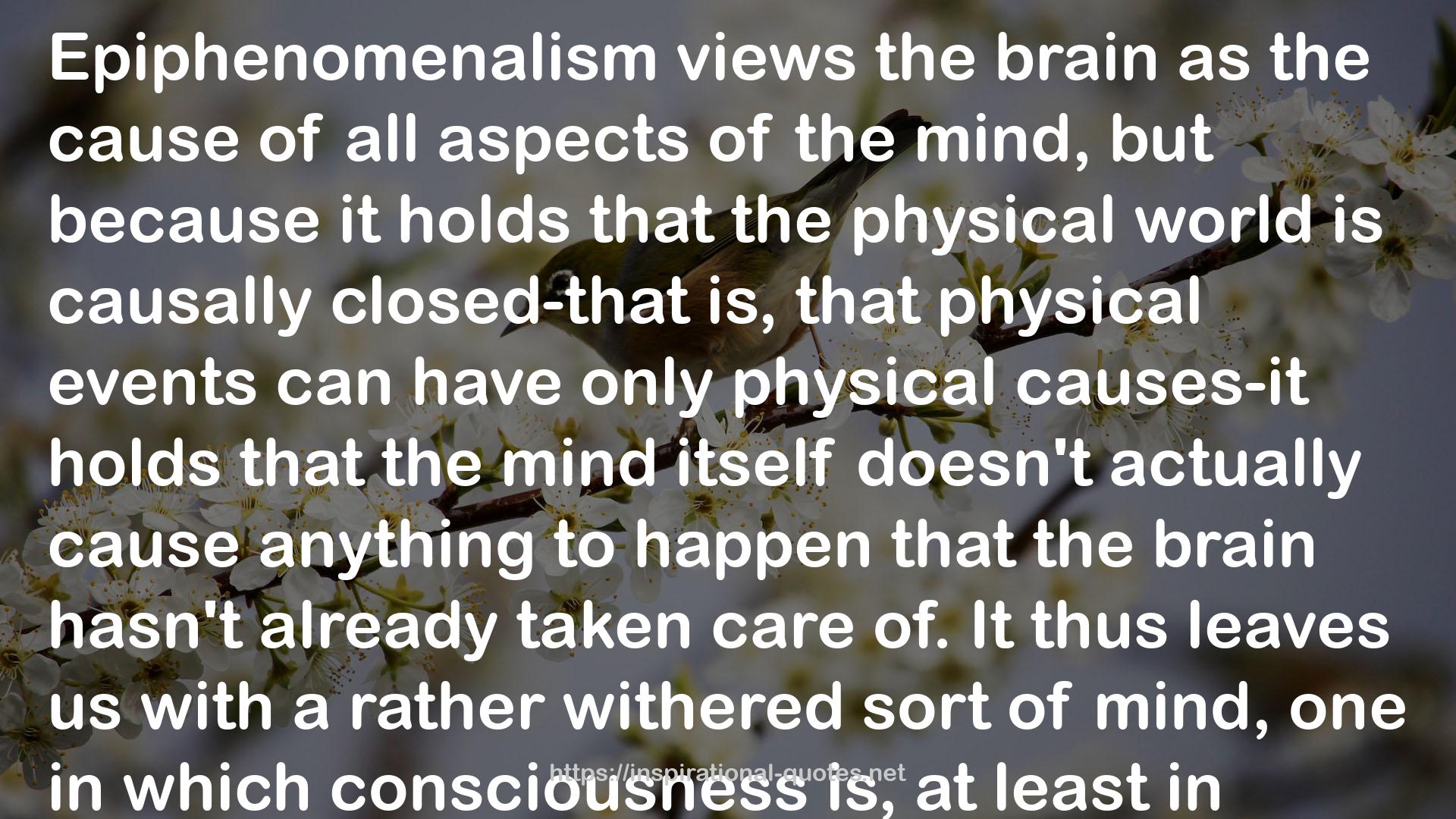" Epiphenomenalism views the brain as the cause of all aspects of the mind, but because it holds that the physical world is causally closed-that is, that physical events can have only physical causes-it holds that the mind itself doesn't actually cause anything to happen that the brain hasn't already taken care of. It thus leaves us with a rather withered sort of mind, one in which consciousness is, at least in scientific terms, reduced to an impotent shadow of its former self. As a nonphysical phenomenon, it cannot act on the physical world. It cannot make stuff happen. It cannot, say, make an arm move. Epiphenomenalism holds that the brain is the cause of all the mental events in the mind but that the mind itself is not the cause of anything. Because it maintains that the causal arrow points in only one direction, from material to mental, this school denies the causal efficacy of mental states. It therefore finds itself right at home with the fundamental assumption of materialist science, certainly as applied to psychology and now neuroscience, that "mind does not move matter," as the neurologist C.J. Herrick wrote in 1956. Put another way, all physical action can be but the consequence of another physical action. The sense that will and other mental states can move matter-even the matter that makes up one's own body-is therefore, in the view of the epiphenomenalists, an illusion. "
― Jeffrey M. Schwartz , The Mind and the Brain: Neuroplasticity and the Power of Mental Force
